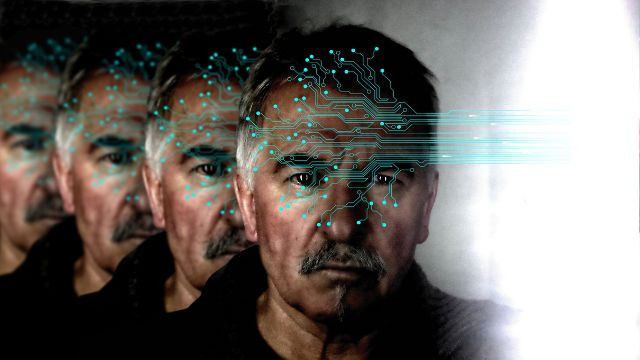How Do We Define Disrespectful & Can It Lead To Contempt For Others?
Jul 06, 2023
How Do We Define Disrespectful & Why Does It Lead To Contempt In Others? | Kingdom Blueprint
 Improve Your Emotional Intelligence
Improve Your Emotional Intelligence
Introduction
Disrespect is an issue that can be found in many different types of relationships, and can have a damaging effect on both parties. To understand how disrespect causes contempt in relationships, we must first look at the multi-intelligence theory proposed by Howard Gardner in 1983. Gardner's theory suggests that there are eight intelligences, or cognitive abilities, that can be used to reframe our definition of intelligence. These include linguistic, logical-mathematical, musical, bodily-kinesthetic, spatial, interpersonal, intrapersonal, and naturalistic intelligence.
Each of these multiple intelligences proposes can be observed in different ways and can be further developed through empirical evidence. For example, someone with a high bodily-kinesthetic intelligence might be able to easily perform mathematical operations or pick up on musical patterns, while someone with a spiritual intelligence might be more attuned to the natural world. By understanding the multiple intelligences theory, we can better understand how to open disrespect or willful disobedience can lead to contempt in relationships.
Defining Disrespect and Psychological Manipulation
When it comes to defining disrespect and psychological manipulation, the Multi Intelligence Theory proposed by Howard Gardner provides an in-depth understanding of how these two concepts can cause contempt in relationships. According to the theory, there are eight cognitive abilities or intelligences, each of which can be developed and strengthened through practice.
These include linguistic intelligence, logical-mathematical intelligence, musical intelligence, bodily-kinesthetic intelligence, spatial intelligence, naturalistic intelligence, interpersonal intelligence, and intrapersonal intelligence. Gardner’s definition of theories of intelligence reframed the concept from being a single general intelligence to an individual’s cognitive abilities. This theory is backed by empirical evidence, as it has been supported by research from Cambridge University Press.
Disrespect can be classified into two categories: willful disobedience and open disrespect. Willful disobedience is when an individual deliberately ignores or disregards the rules and regulations set by someone else. Open disrespect is when an individual speaks or behaves in an inappropriate or rude manner.
Psychological manipulation is when an individual uses tactics to control or influence the behavior and emotions of another person. Both of these can cause contempt in relationships, as they can lead to a lack of trust and understanding between two people. Therefore, it is important to recognize when someone is being disrespectful or manipulative and to take the necessary steps to address the issue.
How to define disrespectful behavior or disrespectful behaviors is shocking disrespect or actions to disrespect people with your disrespectful behavior or disrespectful behaviors. A disrespectful behavior is like the use of substance abuse examples, nasty carefree behavior, and other forms of behaviors that insult one individual or a group. Ignoring a teacher is a common form of disrespecting someone in communication. If the student treated a teacher with this type of behavior it is only a matter of time before their attitude leaks to other teachers or parents.
Understanding the Multi-Intelligence Theory
 Improve Your Emotional Intelligence
Improve Your Emotional Intelligence
The Multi Intelligence Theory, developed by Howard Gardner in 1983, states that there are nine distinct intelligences: musical, linguistic, logical-mathematical, spatial, bodily-kinesthetic, interpersonal, intrapersonal, naturalistic, and existential. Each intelligence is composed of specific learning styles, such as musical patterns, body movement, and individual differences.
These learning styles are based on the cultural setting in which a person is raised, such as the New York or Washington Post. Self-awareness of cultural setting is essential to understanding one’s own biopsychological potential and abilities. For example, a person with excellent hand-eye coordination may have the ability to solve problems and process information better than someone who does not.
Respect and disrespect are two sides of the same coin. Respect is derived from the Middle English word “respecten,” which has its roots in the Anglo-French word “respecter” meaning “to look at.” Disrespect, on the other hand, is derived from the Latin word “despectus,” meaning “to look down on.” Respect is the act of showing admiration or deference for someone or something.
Disrespect, on the other hand, is the act of showing contempt or disregard for someone or something. This idea is further supported by the Basic Books publication “Theory of Respect and Disrespect: An Interdisciplinary Exploration,” which states that respect and disrespect are two sides of the same coin. Respect is essential for relationships of any kind, including those between individuals, groups, and legislative bodies. Disrespect can lead to contempt, both civil and criminal contempt. Familiarity may breed contempt, but respect is essential for any relationship to thrive.
Examining Psychological Manipulation & Disrespectful Behaviors
Psychological manipulation is a form of disrespect that can be difficult to identify and address. This type of manipulation occurs when a person uses their understanding of the psychology of manipulation to influence another person’s thoughts, feelings, words, and behavior. It is a form of psychological coercion by which a manipulator uses body movement, words, intentions, motivations, and feelings to control another person.
Disrespect is often expressed through language, body language, and behavior that conveys disdain for another person. When someone is disrespected, they often feel belittled, ignored, or taken advantage of. Disrespect can be intentional or unintentional, but either way, it can have a powerful impact on a person’s sense of self-worth and self-confidence. It is important to recognize and address disrespectful behavior in order to build healthy relationships and foster mutual respect.
Exploring How Contempt & Manipulation Are Associated
Contempt is a complex emotion that is often associated with manipulation and disrespect. Understanding the psychology of manipulation can help us to better understand how contempt is formed in relationships. A manipulator is someone who uses words, body movements, and intentions to influence another person's feelings, motivations, and behavior. This form of psychological manipulation is often used to gain power and control over another person.
Disrespect is another form of manipulation that can lead to contempt. When someone is disrespected, it can be seen as a form of psychological abuse, as it is a violation of personal boundaries. Disrespect can come in many forms, from body language to verbal language to intentions. It can also take the form of disdain or contempt for another person or a legislative body. Disrespect can lead to familiarity breeding civil contempt too, as well as criminal contempt or civil contempt.
High Bodily-Kinesthetic Intelligence and Open Disrespect
High Bodily-Kinesthetic Intelligence and Open Disrespect are two concepts that are often confused and misunderstood. According to Howard Gardner's multiple intelligences theory, Bodily-Kinesthetic Intelligence is the ability to use one's body to express ideas and feelings, while Open Disrespect is a willful disobedience or disregard for authority. While both are related to cognitive abilities, they are very different in nature.
Bodily-Kinesthetic Intelligence is a type of intelligence that allows people to use their bodies to express ideas and feelings. It is closely related to Existential Intelligence, Musical Intelligence, Naturalistic Intelligence, and Logical-Mathematical Intelligence. Gardner's definition of this intelligence is that it is the ability to use one's body to solve problems, manipulate objects, and perform mathematical operations. This type of intelligence involves the use of physical coordination, balance, and agility.
On the other hand, Open Disrespect is willful disobedience or disregard for authority. It can be seen in a variety of forms, including verbal abuse, physical aggression, and mental illness. This type of disrespect can have a negative effect on relationships, as it can lead to contempt and a lack of trust.
Gardner's theory proposes that multiple intelligences can be reframed to better understand how disrespect can cause contempt in relationships. There is empirical evidence to suggest that high bodily-kinesthetic intelligence can be used to counter open disrespect and foster healthier relationships.
Contempt is the Basis of Psychological Manipulation
Contempt is never a good thing to have for anyone. Familiarity breeds contempt so then, the more familiar you are with someone, the easier it is to build contempt for that person. Let's first define contempt and familiarity.
So What Is Contempt or To Have Contempt for Someone
Contempt, or having contempt for someone, is a strong feeling of disrespect and fear that is often rooted in a power imbalance within relationships. Contempt can manifest itself through verbal, physical or emotional abuse as well as general acts of disrespect such as dismissiveness or sarcasm.
It can also be seen in the way people treat one another, with those in positions of power often using their influence to belittle those below them. Contempt is usually rooted in a deep lack of respect or understanding for the other person and is often used as an attempt to control or manipulate someone. While contempt can exist in any relationship, it is particularly damaging in romantic relationships where trust and mutual respect are essential components of creating a healthy connection. Ultimately, contempt should be addressed with honesty and empathy on both sides if any meaningful change is to occur.
The effects of contempt can have long-term implications for both parties involved in the relationship. It can lead to feelings of worthlessness, anxiety, depression, low self-esteem, and difficulty trusting others. By recognizing contemptuous behaviors early on in relationships, individuals are empowered to seek help and take action in order to protect themselves.
By understanding the multi-intelligence theory, it is possible to gain greater insight into how disrespect causes contempt in relationships, as well as how to address these issues with empathy and understanding. Taking these steps can go a long way toward creating healthier and more meaningful connections.
Familiarity according to Gardner's intelligences or Gardner's theory different learning styles
Any educational psychologist that is interested in student learning will talk about intelligences and Gardner's theory. which proposed the idea that there are seven distinct types of intelligence:
Linguistic intelligence - the ability to manipulate language and use it effectively for communication.
Logical-mathematical intelligence - the capacity to understand abstract relationships between numbers, equations, and symbols.
Spatial intelligence - the ability to visualize spatial information such as maps, shapes, and diagrams.
Bodily-kinesthetic intelligence - the capacity to use one's body to express ideas, solve problems and create art.
Musical intelligence - the ability to understand and appreciate musical instruments.
Interpersonal intelligence - the capacity to successfully interact with others through empathy and understanding of their emotions and motivations.
Intrapersonal intelligence - the ability to self-reflect and understand one’s own feelings, motivations and goals.
Gardner proposed that these intelligences can operate independently or in combination with each other, allowing individuals to develop a unique profile of intelligences. He argued that traditional educational systems often favor certain types of intelligence, such as linguistic and logical-mathematical while neglecting others.
Therefore, he proposed that educators should strive to develop all seven types of intelligences in students in order to create a more balanced student learning experience.
Gardner’s theory has been highly influential in recent decades, inspiring educational reformers to focus on creating a more well-rounded educational experience that caters to the different types of learners. The theory has also been embraced by psychologists and educationalists who have used it as a tool for understanding how people learn, think, and process information.
Despite its popularity, some critics argue that Gardner’s theory fails to provide evidence for the existence of distinct intelligences, or that certain aspects of intelligence are missing from his theory. Nevertheless, the concept of multiple intelligences has had a significant impact on education and continues to influence contemporary thinking about how people learn and develop.
How Mental Illness May Affect Cognitive Abilities

Our Blog Posts are made with a biblical basis and are combined with personal experience. Our coaching has led people to marriage restoration testimonies!!!!
Set-Up A Free Consultation Here Stay connected with news and updates!
Join our mailing list to receive the latest news and updates from our team.
Don't worry, your information will not be shared.
We hate SPAM. We will never sell your information, for any reason.















